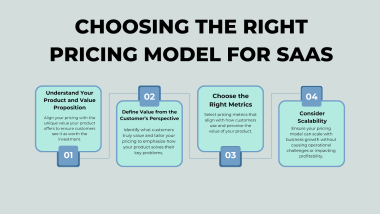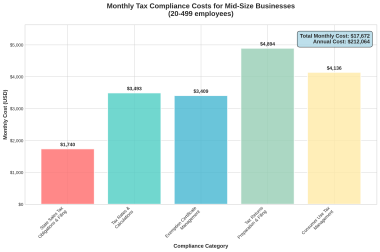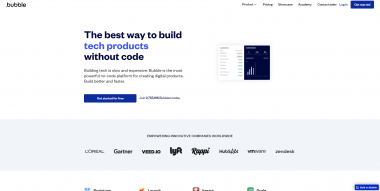The European Union is popular for its toughest and the most strict enforcement of competition laws against Tech Giants. Known for its stringent privacy regulations like the General Data Protection Regulation (GDPR), the EU continues to push the boundaries with new legislation.
The latest addition to this regulatory arsenal is the Digital Markets Act (DMA), a law targeting “gatekeeper” platforms.
This article will dive into the DMA’s impact on Google and Apple to explore the obligations it places on these services and how it intersects with existing privacy regulations.
What is the Digital Markets Act (DMA)
Imagine you’re playing a game with your friends, and one friend starts making up their own rules that give them an unfair advantage. Everyone else feels like they can’t win because of these special rules.
Well, the Digital Markets Act (DMA) is a set of rules created by Eurpeon Union to make sure that big companies like Google and Apple play fair and don’t use their size to win all the time.
The DMA helps to create a fair playground where everyone, big or small, has a chance to compete and do well.
Here’s what the Digital Markets Act does in simple terms:
- Level Playing Field: The DMA makes sure that big tech companies can’t just favor their products or services over others. This means they can’t always put their apps at the top of search results or make it hard for other companies to compete.
- Fair Access: It also says that these big companies have to share their platforms fairly. This means smaller companies can have a chance to reach customers and offer their products without unfair obstacles.
- More Choices for You: The DMA encourages companies to give you more choices. For example, you might be able to easily switch between different apps or use different online services without feeling stuck with just one option.
Geographical Scope
This concerns the European Union even though comparable regulations might be relevant in other regions, such as the UK.
Timeline
The Digital Markets Act (DMA) will become effective in May 2024, while compliance with cookie consent under the General Data Protection Regulation (GDPR) has been required since 2018.
Services regulated by the Digital Markets Act
The Digital Markets Act (DMA) oversees specific online platform services considered to hold substantial market power. These services, often dubbed “gatekeepers” must adhere to DMA obligations to ensure fair competition and user protection.
Regulated services include:
- Online search engines: These platforms, like Google Search or Bing, help users find information on the internet.
- Online intermediation services: These platforms connect consumers with goods or services offered by third-party sellers, such as online marketplaces like Amazon or eBay.
- Social networking services: Platforms like Facebook, Twitter, and Instagram facilitate social interaction and content sharing among users.
- Video-sharing platform services: Platforms like YouTube and Vimeo allow users to upload, share, and view videos online.
- Operating systems: Operating systems for smartphones and computers, such as iOS and Android, are also subject to regulation under the DMA.
- Cloud computing services: Platforms that offer cloud storage and computing services, like Google Cloud and Microsoft Azure, are included in the DMA’s scope.
- Advertising services: Platforms that provide advertising services, including targeted advertising, such as Google Ads and Facebook Ads, fall under DMA regulation.
What Are Gatekeepers according to DMA?
According to the DMA, gatekeepers are large online platforms that hold significant power and influence in the digital world. These platforms act as crucial intermediaries, connecting businesses and users, and controlling access to important digital services.
Gatekeepers are identified based on specific criteria related to their market share, user base, and impact on competition and innovation.
The European Union Commission Designated Six Gatekeepers. Below is their detailed list:
- Alphabet: Google Maps, Google Play, Google Shopping, Youtube, Google Search, Chrome, Google Android, Google
- Amazon: Amazon Marketplace, Amazon,
- Apple: App Store, iOs, Safari
- ByteDance: TikTok
- Meta: Meta, Facebook, Instagram, WhatsApp, Messenger, Meta Marketplace
- Microsoft: LinkedIn, Windows PC OS
Major Obligations For Google & Apple Under Digital Markets Act
For tech giants like Apple and Google, the heart of the DMA lies in Articles 5, 6, and 7, which outline the specific rules gatekeepers must follow.
Let’s break down some key obligations for Apple and Google:
Fairer Play for Developers and Businesses:
- No More Self-Preferencing: Article 5(3) prohibits Apple and Google from favoring their own products or services over those offered by third-party developers within their app stores. This means developers can now freely set their own prices and conditions for app subscriptions and in-app purchases, without being forced to match Apple or Google’s pricing structure.
- Freedom to Choose Payment Systems: Businesses can now bypass the gatekeepers’ in-house payment systems (like Apple Pay or Google Pay) and offer their own payment options within their apps. This promotes competition and potentially lowers transaction fees for both developers and consumers.
- Opening the Gates to Third-Party Stores: Previously, users were limited to downloading apps exclusively through the official app stores of Apple and Google. The DMA now allows developers to advertise and steer users towards alternative app stores or direct download options. This fosters a more open digital ecosystem, giving users more choice and potentially leading to a wider variety of apps.
Protecting User Privacy and Freedom:
- Data Restrictions: The DMA cracks down on how gatekeepers can leverage user data. Article 5(2) prohibits Apple and Google from using user data obtained through their core platform services (like app stores and search engines) for targeted advertising on third-party platforms. This aims to limit data collection and prevent user profiles from being built across various online platforms.
- Unbundling Services: Gone are the days of forcing users to sign up for multiple services offered by the gatekeeper. Under Article 5(7), Apple and Google cannot require users to subscribe to additional services (like cloud storage or music streaming) as a condition for using their core services (like email or maps). This empowers users to choose individual services they need, rather than being bundled into a package.
- Freedom of Choice: The DMA promotes user autonomy by guaranteeing the right to choose default apps and services. Apple and Google can no longer force their own browsers, search engines, or other default apps on users. Article 5(8) mandates the creation of “choice screens” that allow users to easily select and install alternative default services.
Ensuring Transparency and Fairness:
- Grievance Redressal: The DMA empowers users by requiring gatekeepers to establish clear and accessible complaint procedures (Article 5(6)). Users now have a designated system to lodge complaints if they feel unfairly treated within the gatekeeper’s ecosystem.
Consequences of Not Complying With the Digital Market Act
If a big tech company like Google or Apple doesn’t follow the rules set by the Digital Markets Act (DMA), it could face serious consequences. Here’s what might happen:
- Fines: The European Commission, which is in charge of enforcing the DMA, can give a big fine to the company. This fine can be as much as 10% of the company’s yearly sales. That’s a lot of money!
- Repeat Offenses: If the company keeps breaking the rules again and again within eight years, the fine can get even bigger. It might go up to 20% of their yearly sales. That’s a huge penalty!
So, these big tech companies need to play by the rules of the DMA. Otherwise, they could end up paying a lot of money in fines.
Investigations into Google & Apple (Add each investigation as a sub-heading)
The European Union initiated investigations into major tech corporations Apple, Google’s parent company Alphabet, and Meta for the first time under the newly enacted Digital Markets Act.
The investigations will evaluate whether Google Play and Apple’s App Store impose restrictions on Game developers, preventing them from showcasing offers to consumers outside of these platforms. Such actions could signify non-compliance with the law. Violations could lead to fines of up to 10% of the companies’ global annual turnover.
Google’s Favoring of Own Services:
One of the alleged violations in the EU’s investigation into Google concerns the potential favoritism of its services in search results. This issue is not new; Google has faced similar scrutiny in the past, notably with its Google Shopping and Google Flights services.
In 2017, the European Commission fined Google €2.4 billion for prioritizing its shopping comparison service in search results over competitors. Despite this fine, concerns persist that Google may still be giving preference to its services, potentially disadvantaging rival offerings.
Apple’s Restrictions on Game developers:
Apple, too, is under investigation by the EU for potential non-compliance with the Digital Markets Act (DMA). One specific allegation revolves around Apple’s restrictions on Game developers, particularly regarding the communication of alternative payment methods to users.
The EU is examining whether Apple imposes limitations that hinder Game developers from informing users about offers outside its App Store without incurring additional charges.
Issues with the iOS Operating System:
Another area of concern for EU regulators regarding Apple’s compliance with the DMA involves the iOS operating system. The investigation focuses on whether Apple is fulfilling its obligations to allow users to easily uninstall software applications, change default settings, or access choice screens enabling them to switch to rival browsers or search engines on iPhones.
The EU seeks to ensure that users have the freedom to make choices regarding their digital experiences and are not unduly restricted by Apple’s ecosystem.
Fee Structures Contravening “Free of Charge” Requirement:
Additionally, the EU has raised objections to both Apple and Alphabet’s fee structures, citing violations of the DMA’s requirement for services to be provided “free of charge.” Recent changes to fee structures by both companies have prompted further scrutiny.
The EU contends that these fee structures may hinder fair competition and consumer choice, contradicting the principles outlined in the DMA. The investigations aim to assess whether the fee structures imposed by Apple and Alphabet are in line with regulatory standards and do not unfairly disadvantage competitors or consumers.
What Changes Did Apple and Google Make?
Changes Made by Apple
Apple is implementing significant changes to its iOS, Safari, and the App Store in the European Union (EU) in response to the Digital Markets Act (DMA). These changes aim to comply with regulatory requirements while maintaining a secure and seamless user experience.
Changes to iOS:
Apple is introducing several modifications to iOS to align with the DMA’s mandates. For developers, these changes offer new options for app distribution. Specifically, developers will gain access to new APIs and tools, enabling them to offer iOS apps for download from alternative app marketplaces.
Additionally, developers can create their app marketplaces, and manage app installations, and updates within their dedicated marketplace apps.
Changes to Safari:
By the DMA’s provisions, Apple is introducing a new choice screen in Safari for EU users. Upon opening Safari in iOS 17.4 or later, users will encounter a choice screen prompting them to select a default browser from a list of options. This change ensures compliance with the DMA’s requirements regarding browser choice.
Changes to the App Store:
Apple is implementing various adjustments to the App Store that affect developers’ apps across its operating systems. These changes offer new options for payment processing and app distribution, including the ability to use payment service providers (PSPs) within apps or link users to external websites for transactions. Additionally, new disclosures will inform EU users about the risks associated with using alternatives to the App Store’s payment processing.
Moreover, Apple is introducing new business terms for apps in the EU, allowing developers to choose between adopting the new terms or remaining on existing ones. The new terms include reduced commissions for transactions on the App Store, payment processing fees, and a core technology fee for iOS apps. Developers operating under the new terms will gain flexibility in distributing their apps and processing payments.
Overall, these changes aim to ensure compliance with the DMA while continuing to provide users with a secure and seamless digital experience.
Changes Made By Google
Google is implementing several changes in response to the European Union’s Digital Markets Act (DMA), which comes into force this week for designated companies.
These changes, developed through extensive collaboration with various stakeholders, aim to comply with regulatory requirements while balancing the needs of users and businesses.
- Changes to Search Results: Google has introduced over 20 product changes, including the addition of dedicated units and chips to facilitate user access to comparison sites for flights, hotels, and shopping. Certain features on the search results page, such as the Google Flights unit, have been removed to align with DMA requirements.
- Choice Screens: Under the DMA, Google will display additional choice screens on Android phones, enabling users to easily switch their search engine or browser. These screens are based on user research, testing, and industry feedback.
- Additional Consents for Linking Google Services: Google is enhancing user consent mechanisms for linking across its products and services. Users in the European Economic Area (EEA) will have the option to manage data sharing preferences across Google services through settings in their Google Account. New consent banners will prompt users to decide whether to link their Google services, ensuring compliance with DMA provisions.
Tools for Developers:
- Third-Party Apps and App Stores: Google’s Android platform already allows users to download third-party apps and app stores. Features introduced in Android 14 enhance the functionality of third-party app stores, providing users with more options and flexibility.
- Alternative Billing: In compliance with the DMA, Google has launched programs that allow Game developers to use alternative billing systems for in-app purchases. The User-choice billing (UCB) program, expanded to game developers, enables developers to offer their own billing system alongside Google Play’s billing. Additionally, an alternative billing option allows developers to exclusively use their billing system for transactions.
- External Offers Program: Google Play-distributed Game developers in the EEA can now lead users outside the app to promote offers, in line with DMA requirements. This program enables developers to communicate freely with customers about offers available on rival app stores or the developer’s website.
- Data and Analytics: Google provides businesses with detailed insights into the performance of their websites, apps, videos, and ads across various platforms. Under the DMA, advertisers and publishers in the EEA will receive additional data to enhance transparency and enable informed decision-making.
- Data Portability: Google offers users the ability to download or transfer their data from over 80 Google products. The Data Portability API for developers, launching in the EEA, facilitates compliance with data transfer requirements.
What Does the DMA Mean for Small Game Developers?
The Digital Markets Act (DMA) brings significant changes for Game developers which provides a level playing field and promotes fair competition in the European Union’s digital market.
Here’s what it means for Game developers:
Reduced Gatekeeper Control:
- The DMA limits the control exerted by gatekeeper platforms, opening up opportunities for alternative app stores to gain traction in the EU. This means developers may have more options for distributing their apps.
- Developers now can inform users about alternative payment methods within their apps without reliance on gatekeeper platforms’ payment systems and potentially lowering transaction costs.
Fairer App Review Process:
- With reduced gatekeeper control, there’s a decreased likelihood of app rejections for non-technical reasons. Developers can expect a more equitable app review process.
- App store reviewers are now expected to provide more transparent communication.
Interoperability and Data Access:
- The DMA encourages interoperability by facilitating easier integration with third-party services and tools. This means developers can leverage a wider range of resources to enhance their apps and improve user experiences.
- There’s potential for increased user data portability. This can lead to greater user control and satisfaction.
Opportunities for Game Developers
The Digital Markets Act (DMA) opens up several new opportunities for Game developers, ushering in a more competitive and dynamic landscape. Here’s how the DMA creates these opportunities:
- Increased access through alternative app stores:
With the DMA requiring gatekeeper operating systems to allow users to use third-party apps and app stores, developers now have the opportunity to reach users through alternative channels beyond the dominant app stores.
- Lower fees compared to gatekeeper app stores:
Gatekeeper app stores often impose significant fees on developers for distributing and monetizing their apps. However, with the DMA mandating the use of alternative billing systems for in-app purchases, developers have the opportunity to explore alternative payment options that come with lower transaction fees.
- More freedom to advertise and compete:
The DMA’s provisions for fair competition aim to level the playing field for all developers, regardless of their size or resources. This means that developers now have a fairer chance to compete with larger incumbents and promote their apps within the platform.
- Greater ability to reach users directly:
The DMA requires gatekeeper platforms to allow developers to inform users about alternative payment methods within apps. This allows developers to educate users about different payment options available, potentially leading to increased conversions and revenue.
Frequently Asked Questions
- What’s the point of the Digital Markets Act (DMA)?
The DMA is a set of rules created by the European Union to make sure big tech companies like Google and Apple play fair. It stops them from giving themselves special treatment and helps smaller businesses compete better. The goal is to give everyone, including users like you, more choices and a fairer digital playground.
- How does the DMA change things for Game developers and businesses?
The DMA brings big changes for Game developers and businesses in Europe. It stops companies like Apple and Google from promoting their own apps unfairly in their app stores. Now, businesses can offer different ways to pay for apps, and other app stores can compete more fairly. This makes it easier for smaller players to grow and gives users more options.
- What happens if tech companies ignore the DMA rules?
If companies don’t follow the DMA rules, they can get hit with hefty fines from the European Commission. For big tech giants, these fines can be as much as 10% of their yearly global sales. If they keep breaking the rules, the fines can get even bigger—up to 20% of their sales within eight years.
How does the DMA protect user privacy and freedom of choice?
The DMA makes sure that companies like Apple and Google don’t misuse your data for targeted ads on other platforms. It also lets you choose different apps and services without being forced to use the ones these companies prefer. For example, you can pick your own default apps and browsers instead of having them chosen for you.
Conclusion
In short, this legislation marks a significant milestone in shaping the future of the digital landscape. While the DMA brings about challenges, it also holds immense potential for fostering a more open and competitive app ecosystem, where innovation thrives and users have greater choice and transparency.
However, if you Want to create your game’s storefront per the Digital Markets Act and sell directly to players? Check out FUNGIES.IO, our advanced website builder that lets you showcase and sell your games without any coding.






